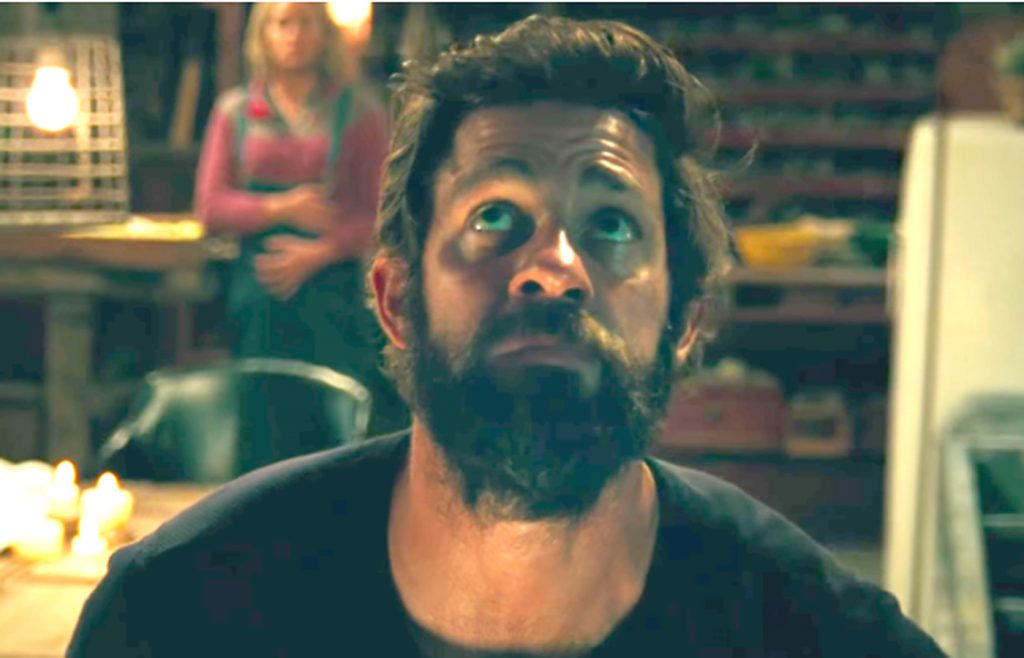
“A QUIET PLACE is an extraordinary piece of work. Terrific acting, but the main thing is the SILENCE, and how it makes the camera’s eye open wide in a way few movies manage.” Tweet from Stephen King, @StephenKing, 6 Apr 2018
A Quiet Place situates its unique premise in an expansive rural location, where the Abbott family is trying to survive. A breed of predatory creatures has invaded the earth and is terrorizing the population. Fortunately, these creatures have no eyes. What they do have is a supernormal sense of hearing, and “if they hear you, they hunt you.”
So the Abbotts walk softly on bare feet. They communicate in sign language (captions included). And when the children play Monopoly, they toss the dice on a soft rug and move fabric pieces around the game board. Nothing stimulates the imagination like the will to survive.
Curiosity drew me to A Quiet Place, though horror lies beyond the ZIP Code of my genre preference—not out of judgment but for my own self-preservation. Still, I’m no virgin. My lean list of indulgences includes Jordan Peele’s phenomenal Get Out, and Ridley Scott’s gooey Alien, which has haunted me since I saw it in 1979. In recent years, I’ve watched Night of the Living Dead and Spielberg’s Poltergeist and Jaws from the safety of our TV room, supervised by my husband. I believe this track record authorizes me to speak my piece.
A Quiet Place holds its own. The angle is original. It’s a gripper. And it’s directed by its star, John Krasinski, who we all hoped would marry Jenna Fischer from the NBC TV series The Office but instead married Emily Blunt, who plays Krasinski’s wife in this movie. But I digress.
A Quiet Place is about brains over brawn. The power of smarts. And in an emergency, this dad (Krasinski) is the guy you want on your team. In his basement war room, he has cleverly invented systems for survival. He studies the behavior of the deadly beasts via news clips. He monitors the family’s rural surroundings on closed circuit TV. And he creates defensive tools to keep his family alive, and strategies to silence the baby that his pregnant wife is due to deliver.
Written by Bryan Woods and Scott Beck, this unusual script captures the imagination. A few minor oversights raise technical questions or seem a little hokey, but we get over them. Mostly what we experience is 90 minutes almost devoid of conversation yet steeped in communication via body language and facial gestures, which soften the tension and the pace. And all the while, we’re rooting for the Abbotts. We revel in their man-over-monster determination and marvel at the mental power that functions without a noise, the unique wiring that sets us humans apart from other life forms and serves as our most potent tool.
A Quiet Place considers what we might be capable of when we draw from our inner resources to face off with danger in the fight for our lives. B+
